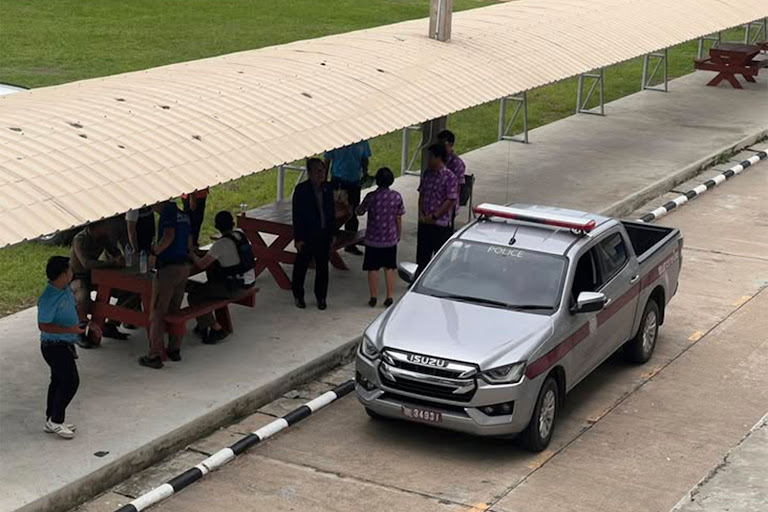Thailand Shooting Reveals Need for Better Mental Health Access
The Suphan Buri shooting, potentially linked to land disputes, highlights critical gaps in mental health access and conflict resolution in rural Thailand.

The news from U Thong district in Thailand is, unfortunately, not unique. A man identified as Paiboon reportedly shot and killed three of his relatives and seriously injured another in a village within the district. As reported by the Bangkok Post, the incident prompted a manhunt and immediate concern, especially for the children at the nearby Wat Yang Sawang Arom School, who were evacuated as a precautionary measure. But beyond the immediate tragedy, this event offers a stark, albeit painful, window into some of the more complex issues facing Thai society.
While initial reports suggest a possible land dispute or family problem as the catalyst, such explanations often only scratch the surface. To understand the roots of this violence and prevent future occurrences, we need to delve deeper into the systems at play. What pressures are families in this region facing? What mechanisms exist for conflict resolution, and why did they fail in this instance? The fact that the alleged perpetrator was known for a “hot temper” and reportedly flaunted a pistol suggests a normalization of aggressive behavior and perhaps lax gun control measures.
The shooting also raises questions about access to mental health services in rural Thailand. Was Paiboon struggling with any underlying mental health issues? Even if the answer is no, the capacity to deal with disagreements, particularly complex disagreements within families about things like land—which can have deep historical and emotional weight—must be investigated. This event underscores the dire need for better, more easily accessible mental health infrastructure, especially in regions where traditional dispute resolution mechanisms might be breaking down.
Furthermore, the immediate response of the community—initially mistaking the gunshots for fireworks—speaks volumes. This suggests either a degree of desensitization to violence or perhaps a willful ignorance stemming from fear. It highlights the importance of community-based interventions aimed at promoting non-violent conflict resolution and creating safe spaces to report concerns before they escalate into tragedy.
Here are some contributing factors we should consider, based on what we can infer from the available information:
- Access to firearms: The alleged perpetrator’s reported habit of showing off his pistol hints at potential issues with gun control enforcement.
- Socioeconomic pressures: Land disputes are often symptomatic of broader socioeconomic inequalities and competition for resources.
- Mental health access: The incident raises questions about the availability and accessibility of mental health services, particularly in rural areas.
- Conflict resolution mechanisms: Traditional family mediation or community-based conflict resolution may be insufficient to address complex land disputes or deeply rooted family problems.
- Cultural norms: The “hot-tempered” label assigned to the suspect could indicate a culture where aggressive behavior is sometimes tolerated or even normalized.
Ultimately, the tragedy in U Thong district serves as a painful reminder that violence is rarely a spontaneous eruption. It is often the culmination of systemic failures, unaddressed grievances, and a lack of resources to address underlying problems. Only by acknowledging these deeper factors can we hope to prevent such incidents from happening again.
The rapid response from the police to secure the school is laudable. However, this reactive measure needs to be balanced with proactive interventions. This incident, stemming from a village in Suphan Buri, reminds us that the work of creating a just and peaceful society never truly ends. It requires constant vigilance, thoughtful policy, and a willingness to confront the uncomfortable truths about the root causes of violence.









